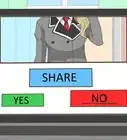This article was co-authored by Trudi Griffin, LPC, MS. Trudi Griffin is a Licensed Professional Counselor in Wisconsin specializing in Addictions and Mental Health. She provides therapy to people who struggle with addictions, mental health, and trauma in community health settings and private practice. She received her MS in Clinical Mental Health Counseling from Marquette University in 2011.
There are 11 references cited in this article, which can be found at the bottom of the page.
This article has been viewed 40,715 times.
Forgiveness means letting go of anger after someone has hurt or wronged you. Forgiveness is for you and you alone. The other person may or may not deserve forgiveness, yet you deserve to be free of resentment. It’s important to remember what happened to you so you can learn from your past and grow stronger. Learn how to forgive without forgetting and grant yourself a more peaceful, positive existence.
Steps
Moving On
-
1Choose forgiveness. When you forgive, you’re making a decision to free yourself from anger, vengeance, and bitterness. Staying angry does nothing to change what happened, nor does it punish the person who wronged you. You’re the only one who is punished when you keep a grudge or dwell in your anger. Forgiveness allows you to move on from a bad situation and emerge stronger. Forgiveness helps you to live life fully and well.[1]
- Living with anger and resentment harms you and the people you love. It can make you feel distracted, irritable, tense and less equipped to deal with everyday stresses. You're more prone to overreact to little things like waiting in line at the grocery store, or dealing with a misbehaving pet or a demanding child. It’s hard to fully enjoy life when you’re consumed by bitterness.[2]
- Anger and resentment can hurt your health. When you keep anger bottled up for a long time, your body remains in a constant flight-or-fight mode. It overproduces the hormones adrenaline and cortisol. This decreases your body's ability to repair its tissues, and weakens your immune system.[3] You’re at greater risk for high blood pressure, heart attack, and stroke. Breaking out of the cycle of anger makes you less stressed and healthier.[4]
-
2Recognize the differences between forgiveness, reconciliation, and justice. Forgiveness is often confused with excusing someone’s behavior or reconciling with the person who hurt you. You can forgive someone, yet still seek justice. You can forgive someone, yet go your separate ways. Forgiveness has nothing to do with what happens to the other person. It has everything to do with letting go of your own destructive emotions and thoughts.
- Justice is when a person apologizes, receives punishment or works to make amends for the wrong or hurtful action. For example, someone who hurt you might apologize to you. Forgiveness is separate from the person’s apology. You may let go of your anger for that person, yet it doesn’t excuse or erase what happened. You can forgive, yet still seek legal recourse if what the person did was criminal.[5]
- Reconciliation means you and the other person work to repair your relationship. It involves effort from both parties. Sometimes, reconciling may put you in harm’s way, such as in an abusive relationship. Other times, you or the other person may have no interest in working on your relationship. You can still forgive someone even if reconciling is not in your best interest.[6]
- For example, if you found out someone you trusted, such as a best friend, was stealing money from you, you'd feel betrayed and angry. Contacting the police is one example of justice. Your friend apologizing and returning your money is another example of justice. Forgiveness without forgetting means you let go of your emotions of anger and bitterness, yet you remember that your friend was untrustworthy. You may or may not decide to reconcile with that person. You may also be cautious when letting new friends into your life to prevent the same thing from happening again.
Advertisement -
3Avoid forgiving and forgetting. You grow wiser when you learn from misfortune. Forgetting the wrongs or pretending they didn't happen robs you of wisdom. Thinking about how you were wronged teaches you about human nature and relationships. Forgive to let go of your anger but don't forget what happened. Forgiving without forgetting is crucial to learning who to trust and how to trust.
-
4Let go. Deciding to forgive is like breaking free from a personal prison. Nothing will erase what happened, yet you can release yourself from the negative emotional side effects. Forgiveness is a choice and only you can choose to forgive. When you make the decision to forgive, you’re moving toward a more positive life.
Committing to Forgiveness
-
1Remember the event. Think about the wrongdoing and the wrongdoer. Bring the hurtful situation to the forefront of your mind. What factors led to the painful event? What things made this situation painful for you? Try to be as objective as possible. Recalling helps you confront the fear, anger, and hurt associated with the situation. Recognizing these feelings, rather than burying or avoiding them, is the first step to forgiveness.
- Notice your body language while you’re recalling. Look for signs of tension like clenched fists, jaw, or shoulders. Using relaxation techniques such as deep breathing can make recalling easier.
- Consider meeting with counselor or therapist if recalling is overwhelming. If remembering makes you extremely anxious or upset, a counselor can help you cope.
- Share or write down what happened. It may help to share what happened and the pain that it caused with a trusted friend. Another option is writing it down and then throwing it away. Recognize your pain, anger, and hurt, so then you can move on.
-
2Empathize with the person who hurt you. Empathy means putting yourself in another person’s shoes to understand his feelings or motivations. Imagine what might have caused the person to behave that way. Was the person acting out of fear or pain? Did he have a lapse in judgment or make a bad decision? Understand the other person’s state of mind and motivations.
- Pretend you’re interviewing the person who hurt you. Be the interviewer and then answer as if you were the other person. Recreate the story of what happened entirely from the other person’s viewpoint. Understanding a person’s motivations humanizes him. It makes it easier for you to forgive someone if you view him as a person who makes mistakes, rather than an evildoer or monster.
-
3Think altruistically. At one time or another, everyone has wronged someone. Think about a time you acted selfishly, angrily or hurtful toward a friend, teacher, sibling, or parent. What happened? What were your motivations? How did your actions affect the other person? Picture the person that you hurt forgiving you. What does her forgiveness feel like for you? Turn your attention to the person who wronged you. Imagine that your forgiveness is a gift for the person who hurt you.
- For example, perhaps you remember a time you acted selfishly. Maybe you told a lie about you friend, causing that friend to get blamed for cheating on a test. Your motivation was to avoid getting into trouble again with your teacher, but you ended up punishing your friend instead. Maybe you felt guilty but were too embarrassed to take responsibility at the time. Try imagining your friend telling you, "I was upset with you but I've moved on. I have no ill will towards you. I forgive you." Feel how freeing this is.
- Focus on how it feels to give a gift of forgiveness. You do not have to actually present your gift of forgiveness to the other person. By symbolically doing it, you start to release your anger and resentment.
-
4Make a gesture of forgiveness. Create a letter, a certificate of forgiveness, or something physical that reminds you of your decision to forgive. When you make a physical gesture of forgiveness, you’re making a decision to move yourself from a negative place to a more positive, healthier one. It’s a reminder to let go of self-pity, hatred, and vengeance when you think of the hurtful event or the wrongdoer.
- Write the letter as if the person who hurt you was going to read it, even though she may never see it. Include how you felt before, during and after the event. Write about the wrongdoer and what her motivations might have been for hurting you. Be sure to write about your choice to forgive and how your life will be now that you are free of resentment.[7]
- For example, you might write, "Dear ________, I was a trusting person and I feel you took advantage of me when you ___________. I've lived in fear and anger for a long time. The anger consumed me and affected many parts of my life. You never learned what friendship, kindness, and compassion are, which led you to _______. You have to live with your choices. Today I am moving on. I'm taking control of my life and have freed myself of my anger towards you. I forgive you."
-
5Hold on to forgiveness. Memories of the wrong will surface even after you have made the choice to forgive. Acknowledge these memories rather than hiding from them. Usually, the memories won’t be as disturbing or harmful as before, since you’ve confronted them during the forgiveness process. If negative feelings such as hate or anger arise, remind yourself that you’ve chosen to forgive by looking at your physical gestures such as your letter or certificate of forgiveness. Interrupt the thoughts related to vengeance and self-pity.
- For example, if remembering what happened makes you angry, vengeful, or bitter, tell yourself, "I made a choice to forgive." Look at your letter or certificate to remind yourself that you're no longer going to be stuck in a negative place. You're emotionally free.
-
6Rewrite your story. Keep a journal of your negative thoughts related to the hurtful event, and rewrite your thoughts based on your commitment to forgiveness. By writing down your negative thoughts and replacing them with positive ones, you’re training your mind to stay on the forgiveness track.
- Make four columns. In the first column, write down the event that’s making you upset and your initial thought about the event. For example, “I saw him out having a good time. He’s acting like nothing happened and it’s making me so angry.”
- In the second column, write what this initial event or thought means to you. What belief or fear is driving your thinking? For example, “He can’t get away with it. It’s not fair. Things like this always happen to me.”
- In the third column, write the short or long term consequences of continuing to think negatively. For example, “Feeling angry isn’t punishing him, only me. I’m tired of feeling this way.”
- In the final column, reframe your thoughts in a more positive, forgiving way. For example, “He’s made his choices and has to live with them. I’m moving on with my life. I’m finally feeling free.”[8]
Forgiving While Staying Mindful
-
1Learn from what happened. Remember what was done to you so you can grow from it. Think about the hurtful event. What lessons can you learn? Were there any warning signs? Think about how you can avoid a similar situation in the future. How might you act differently if the same thing happened again? Difficult events can be a springboard for growth when you choose to reflect on what happened.[9]
- For example, you're laid off after dedicating years to a company. You understandably feel angry and betrayed. You gave everything to the company, even missing important family events because of the large workload. Remaining in a vengeful place does nothing except make you miserable. In thinking about the events leading up to the layoff, you realize you sacrificed too much of yourself for a job. You can decide to make more time for yourself and loved ones in the future.
-
2Avoid repression. Repression is when you bury memories of bad events. When you repress memories, you get side effects like anxiety and depression. You may lash out and not realize why. Repression is an unhealthy way to cope. It causes you to get stuck in an emotional rut. The process of forgiving without forgetting is healthier because it brings the negative event into your awareness. You reflect on the event, learn from it, and move on.
- Pretending like something never happened is a form of repression. For example, if a friend stole money from you but you act like nothing ever happened, you're repressing. You try to act like your old self when your with your friend, but when you get home you yell at your pet or give your loved ones the cold shoulder. Repressing your feelings toward your friend is causing them to come out in other unhealthy ways.
-
3Build optimism. Forgiving without forgetting helps you create an optimistic, hopeful outlook. When you have an optimistic outlook, you can better deal with life's many challenges. When you're optimistic, you know that bad events and emotions are temporary. When your outlook is pessimistic, you tend to think bad events and ugly emotions last forever.
- The process of forgiving without forgetting helps you take control of your emotions. You replace your anger and bitterness with hope and strength.You learn that you can take on any challenge that comes your way and persevere.[10]
-
4Make meaning out of suffering. In a perfect world, people would never hurt or disappoint you. Since the world is far from perfect, forgiving without forgetting makes you better equipped to deal with the many challenges of life. Once you’re free of anger, self-pity, and hate, you’re open to the more powerful and productive emotions of hope and resilience. What you choose to do with your life in the face of suffering defines you. You're the only one who has control of your inner world. When you remove yourself from the burden of resentment, you’ll experience a world of possibilities.[11]
- Viktor Frankl was a doctor who was imprisoned in a Nazi concentration camp during World War II. During imprisonment, he saw death and cruelty on a daily basis. By thinking of his wife and planning a book, he held on to hope and never lost the will to live. Viktor Frankl survived the camp. He dedicated his life to helping people take control of their inner world when faced with unjust or difficult circumstances.
References
- ↑ http://psychcentral.com/lib/what-is-forgiveness/
- ↑ http://consumer.healthday.com/encyclopedia/emotional-health-17/emotional-disorder-news-228/repressed-anger-647705.html
- ↑ http://www.mayoclinic.org/healthy-lifestyle/stress-management/in-depth/stress/art-20046037
- ↑ http://www.everydayhealth.com/news/ways-anger-ruining-your-health/
- ↑ http://greatergood.berkeley.edu/topic/forgiveness/definition/
- ↑ http://www.pbs.org/thisemotionallife/topic/forgiveness/understanding-forgiveness
- ↑ https://www.psychologytoday.com/blog/write-yourself-well/201403/transactional-writing-letters-heal
- ↑ https://www.1alliancecps.com/wordpress/2013/09/02/cognitive-behavioral-therapy-cognitive-journaling-using-the-abc-model/
- ↑ http://evolutioncounseling.com/forgive-and-remember/

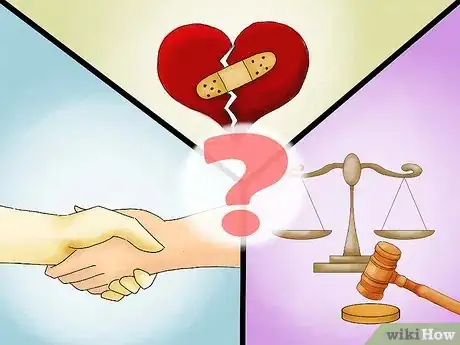
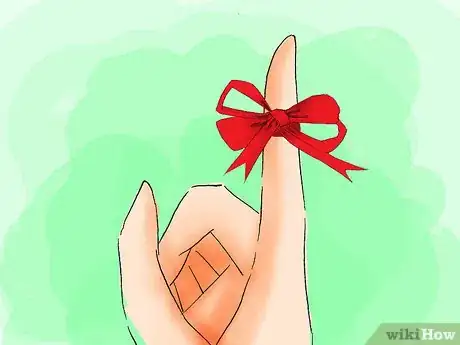
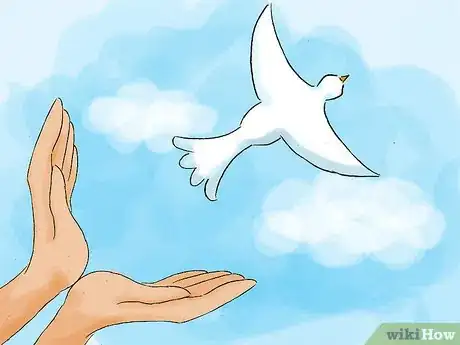
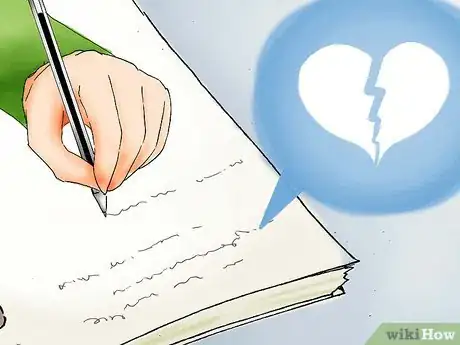


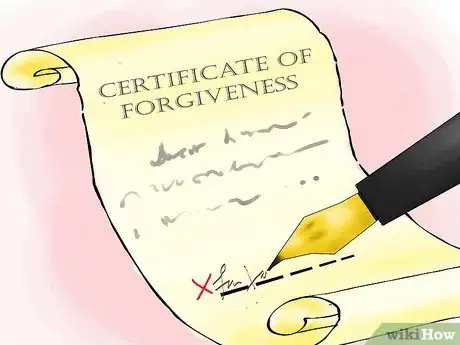

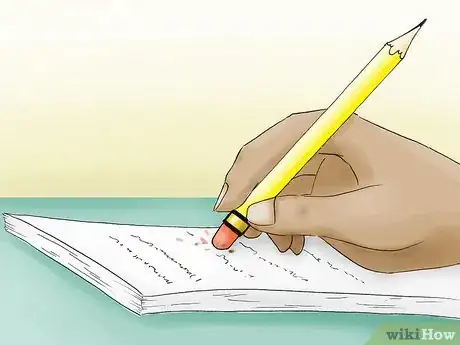

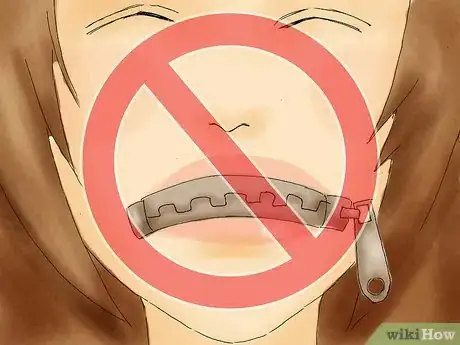
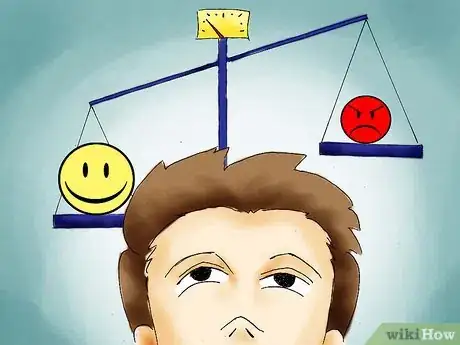


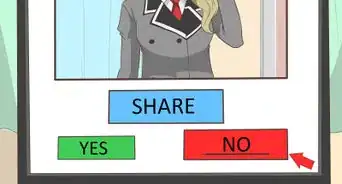







-Step-15-Version-2.webp)













